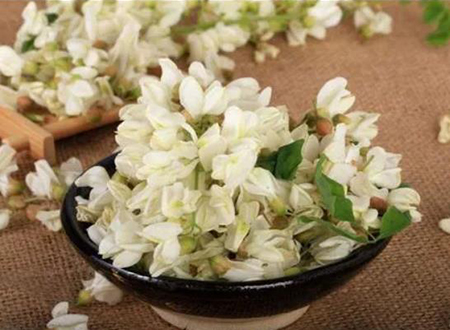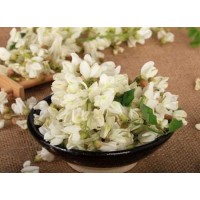Main chemical constituents and efficacy of Sophora japonica extract
One of the most important medicinal parts of Sophora japonica is its extract, which contains a variety of chemical constituents that contribute to its therapeutic effects.
Sophora japonica is a deciduous tree native to China, Korea, and Japan. The tree's flowers, leaves, and fruit have been used in traditional Chinese medicine for centuries. One of the most important medicinal parts of Sophora japonica is its extract, which contains a variety of chemical constituents that contribute to its therapeutic effects.
Chemical Constituents
Sophora japonica extract contains a variety of chemical compounds, including flavonoids, alkaloids, quinones, and terpenoids. The main flavonoids found in the extract are Sophora japonica extract rutin, quercetin, and kaempferol. Rutin is a type of flavonoid that has been shown to have antioxidant, anti-inflammatory, and antitumor properties. Quercetin is another flavonoid that has been shown to have antioxidant, anti-inflammatory, and antiviral properties. Kaempferol is a flavonoid that has been shown to have antioxidant, anti-inflammatory, and anticancer properties.
The main alkaloid found in Sophora japonica extract is marine. Matrine has been shown to have antitumor, anti-inflammatory, and antiviral properties. Other alkaloids found in the extract include oxymatrine, sophocarpine, and sophoridine.
Sophora japonica extract also contains quinones such as sophora quinone A and B. Quinones have been shown to have antitumor and antioxidant properties. Finally, the extract contains terpenoids such as β-sitosterol and stigmasterol. Terpenoids have been shown to have anti-inflammatory and anticancer properties.

Efficacy
Sophora japonica extract has a wide range of therapeutic effects due to its various chemical constituents. Here are some of the main health benefits of the Sophora japonica extract:
Antioxidant Properties
Sophora japonica extract has strong antioxidant properties due to its high content of flavonoids and quinones. Antioxidants help protect cells from damage caused by free radicals, which are unstable molecules that can cause oxidative stress and contribute to the development of chronic diseases such as cancer, heart disease, and diabetes.
Anti-Inflammatory Properties
Sophora japonica extract has been shown to have anti-inflammatory properties due to its high content of flavonoids and terpenoids. Inflammation is a natural response to injury or infection, but chronic inflammation can contribute to the development of many diseases such as arthritis, asthma, and inflammatory bowel disease.
Antitumor Properties
Sophora japonica extract has been shown to have antitumor properties due to its high content of alkaloids such as marine and oxymatrine. These alkaloids have been shown to inhibit the growth and spread of cancer cells in vitro and in vivo.
Antiviral Properties
Sophora japonica extract has been shown to have antiviral properties due to its high content of flavonoids such as quercetin and kaempferol. These flavonoids have been shown to inhibit the replication of viruses such as influenza virus and hepatitis B virus.














